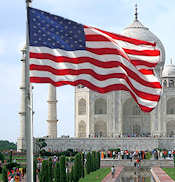 In addition to changing the definition of “broker,” the proposed new rules under Part 129 of the International Traffic in Arms Regulations expand the jurisdictional reach of those rules over foreign persons. Part 129 currently covers brokering activities by U.S. persons wherever located, foreign persons in the United States and foreign persons “otherwise subject to the jurisdiction of the United States.”
In addition to changing the definition of “broker,” the proposed new rules under Part 129 of the International Traffic in Arms Regulations expand the jurisdictional reach of those rules over foreign persons. Part 129 currently covers brokering activities by U.S. persons wherever located, foreign persons in the United States and foreign persons “otherwise subject to the jurisdiction of the United States.”
The controversy over these rules has centered on the meaning of “otherwise subject to the jurisdiction of the United States.” Most exporters and export lawyers interpret this to be a reference to traditional concepts of jurisdiction, so that foreign brokers with pervasive contacts with United States would be covered but foreign brokers with few or no contacts with the United States would be excluded.
DDTC had claimed, however, that this language also referred to foreign brokers involved in transactions involving U.S.-origin defense articles. The proposed rules now explicitly state that the rules cover:
any foreign person located outside the United States who engages in brokering activities involving a U.S.-origin defense article or defense service, by any foreign person located outside the United States who engages in brokering activities involving the import into the United States of any defense article or defense service, or by any foreign person located outside the United States who on behalf of a U.S. person engages in brokering activities involving any defense article or defense service.
One of the objections to such an expanded jurisdictional scope of Part 129 was that it departed from the intent of Congress in passing the Brokering Amendment to the Arms Export Control Act in the first place. The House Report on the Brokering Amendment made clear that the intent of Congress was to close a loophole that allowed brokers in the United States to be engaged in the export of defense articles from one foreign country to another in ways that might be inimical to the foreign policy interests of the United States but which could not be prevented because no export license was required. Brokering activities by foreign persons with respect to U.S.-origin defense articles, however, aren’t subject to that loophole because the export of the U.S.-origin defense article will ultimately require an export license.
The new rules attempt, sort of, to address this issue by providing an exemption from the requirement for brokers to obtain a license where the transaction involves activities by a registered broker involving U.S.-origin defense articles as long as the registered U.S. manufacturer
has obtained a license or other approval to authorize the broker to participate in the export of such defense articles or defense services associated with the brokering activities, and the brokering activities are carried out in accordance with the license or other approval
This is presumably a reference to the exporter having obtained an export license where the broker is listed as an intermediate foreign consignee on the license application. The problem here is, of course, that, as a practical matter, the foreign broker often begins its activities prior to the license being granted. Another problem is that not all brokers are foreign consignees of the exported articles and won’t be listed on the license application. In both of those cases, exporters are back in the position of having to get two separate authorizations for one export transaction where a foreign broker is involved.
 Permalink
Permalink
Copyright © 2009 Clif Burns. All Rights Reserved.
(No republication, syndication or use permitted without my consent.)

 Posted by
Posted by  Category:
Category: 

